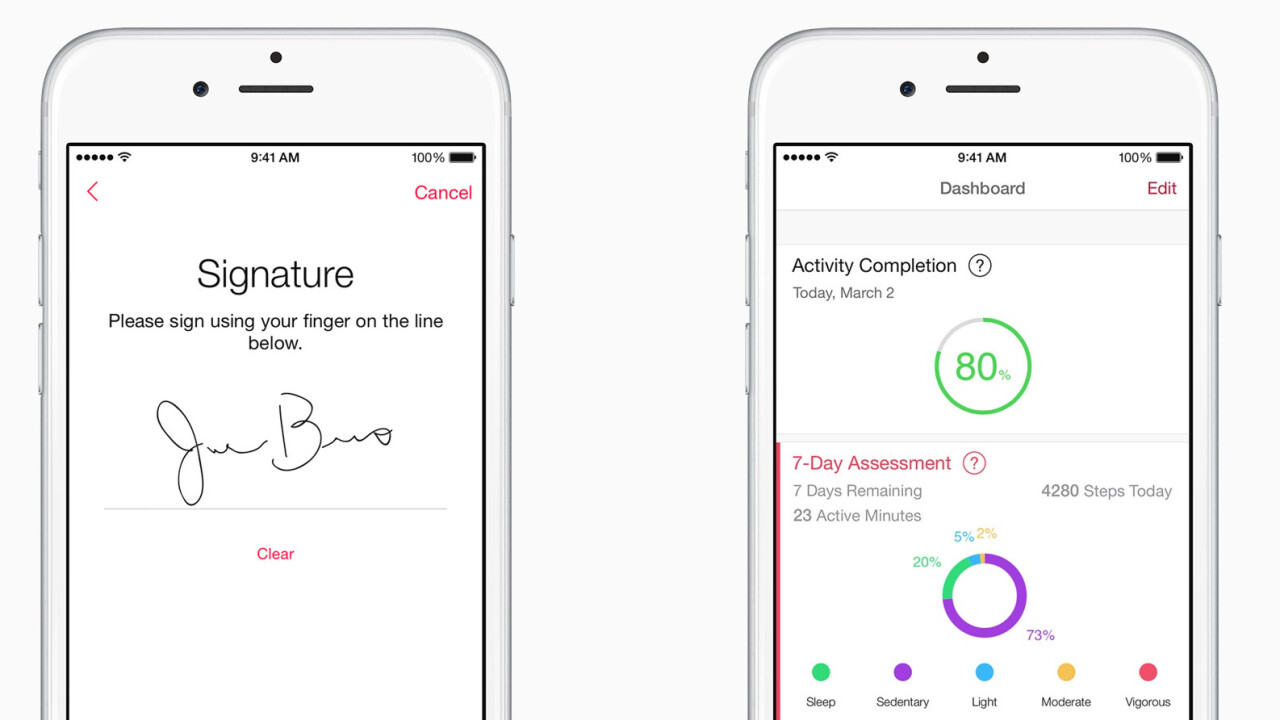
Apple’s open source framework for medical studies is expanding today into new fields with a number of trials.
The company announced three key areas it’ll be used in for research.
First, an epilepsy study will use the Apple Watch to detect the onset and duration of seizures. The company developed a custom complication that will appear on the watchface.
That will allow patients to get one-touch access to capture accelerometer and heart rate data, along with the ‘digital signature’ of the seizure and notifying a family member.
Second, a melanoma study will use the iPhone’s camera to track mole growth and measure them over time.
Study participants will be able to submit them directly from their phone, which is eventually hoped to help researchers develop an algorithm for better detection of at-risk moles.
Third, the autism study will use the iPhone’s front-facing camera to detect developmental issues via emotion detection algorithms to track how a child reacts to videos shown on screen.
The epilepsy study is led by Johns Hopkins, melanoma by the Oregon Health & Science University and autism by Duke University/Duke Medicine.
ResearchKit was unveiled at Apple’s Worldwide Developer Conference in March and initially focused on breast cancer, diabetes, parkinson’s disease, cardiovascular disease and asthma.
The framework focuses heavily on user privacy and making it far easier for people to opt-in to medical studies, which frequently have low acceptance rates due to the effort involved to sign up.
It’s available for use in Austria, China, Germany, Hong Kong, Switzerland, the UK and the United States.
➤ New ResearchKit studies [Apple]
Get the TNW newsletter
Get the most important tech news in your inbox each week.





